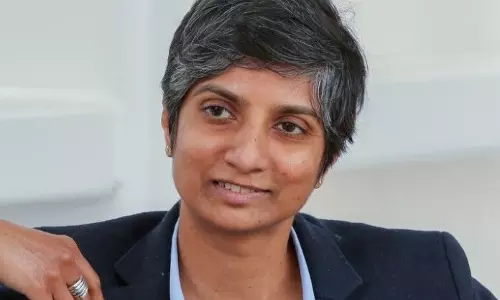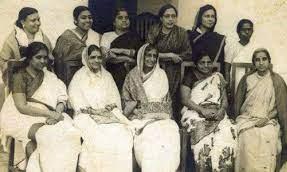
Forgotten founders: women pioneers who shaped India's constitution
text_fieldsAs India celebrates its constitutional legacy, it's essential to recognize the unsung heroines who fervently contributed to the shaping of the nation's guiding document.
While conventional narratives often spotlight male figures, the 299-member Constituent Assembly featured 15 formidable women who battled patriarchy, caste oppression, child marriage, and widowhood.
In discussions spanning reservations to the Uniform Civil Code, these women advocated for an inclusive India that embraced both genders' perspectives. Despite facing disparaging remarks from fellow Assembly members, they played a pivotal role in crafting a sovereign and secular republic.
Annie Mascarene: champion of democracy
Born in 1902, Annie Mascarene's legal and political prowess significantly influenced her contributions to the Constituent Assembly Debates. Hailing from Travancore, she emphasized the need for centralized power while cautioning against detrimental complete centralization. Mascarene believed the Assembly's task was to lay down democratic principles for future generations.
Hansa Jivraj Mehta: freedom fighter and flag-bearer
A multifaceted figure, Hansa Jivraj Mehta, a freedom fighter and women's rights advocate, presented India's first national flag on Independence Day in 1947. In the Constituent Assembly, she ardently opposed reservations for women, advocating instead for social, economic, and political justice. Her legacy extended to serving on the UNESCO board and becoming the first Vice Chancellor of MS University in Baroda.
Dakshayani Velayudhan: Gandhian crusader
Hailing from the Pulaya community in Kerala, Dakshayani Velayudhan faced discrimination but emerged as a Gandhian force. In the Constituent Assembly, she asserted that it not only provided a new framework for the country but also granted people a new framework of life. A proponent of Article 17 abolishing untouchability, Velayudhan dedicated her post-assembly life to social work in Delhi.
Amrit Kaur: royalty turned activist
A princess turned activist, Amrit Kaur played a vital role in both the freedom struggle and post-independence India. Advocating for a universal adult franchise, Kaur rejected reservations for women, believing true equality came through ordinary elections. As the first women Health Minister, she founded institutions like the All India Institute of Medical Sciences (AIIMS).
Ammu Swaminathan: anti-caste crusader
Despite her upper-caste background, Ammu Swaminathan vehemently fought against caste-based discrimination. A key figure in the Women's India Association, she supported adult franchises and the removal of untouchability. Swaminathan's advocacy extended to reforms in Hindu religious laws, addressing the issues she personally faced, such as child marriage.
Durgabai Deshmukh: mother of social work
Remembered as the 'Mother of Social Work,' Durgabai Deshmukh was instrumental in nation-building and social reform. In the Constituent Assembly, she championed judicial matters and advocated lowering the age for holding a seat in the Council of Ministers. Post-Independence, she led the Planning Commission and chaired the Central Social Welfare Board (CSWB).
Begum Aizaz Rasul: advocate for minority rights
Begum Aizaz Rasul, born into a princely family in Punjab, was the only Muslim woman in the Constituent Assembly. An advocate for minority rights in a secular state, she opposed reservations and separate electorates, deeming them self-destructive. Beyond the Assembly, Rasul sought ways to improve the educational and socio-economic conditions of Muslims amid the rising popularity of Hindutva.
Vijaya Laxmi Pandit: Diplomat and Revolutionary
Often overshadowed as Jawaharlal Nehru's sister, Vijaya Laxmi Pandit was a diplomat and revolutionary. A trailblazer, she emphasized India's responsibilities towards its citizens and other countries in the Assembly. Post-independence, Pandit represented India globally, serving as the only woman delegate at the United Nations Organisation Conference and becoming the first woman President of the UN General Assembly in 1953.
These women, with their diverse backgrounds and unwavering dedication, left an indelible mark on India's constitutional journey.























